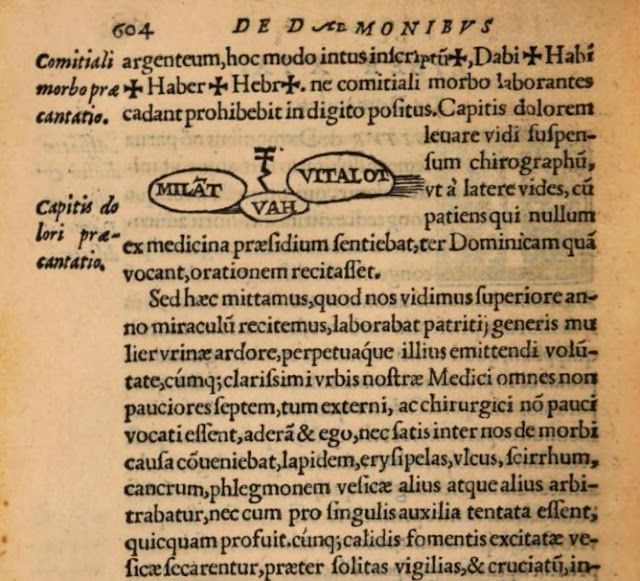Cyrano de Bergerac talks about a book by Gerolamo Cardano, in which he is visited by a pair of gentlemen from the Moon.
Cardano is easily of the stature of Leibnitz and Newton; the list of his contributions is formidable, and Cyrano's citing him is like me today saying 'As Wolfgang Pauli himself noted'.
Cardano wrote *a lot*, but likeliest place to look is De Subtilitate Rerum (1550). There is a liber on demonology, in which he describes something his father related:
Verum omnibus historiis magis admirabilem hic subiiciam, quam non semel nec paucis vicibus audiui a patre meo, Facio Cardano, qui deaemonem se familiarem per xxx ferme annos habuisse confitebatur.
But of all the stories I relate here, this which I heard not once not several times from my father, Facio Cardano, is more wonderful still. He confided he'd had a demonic familiar for almost thirty years . . .
He goes on to describe his father being visited by seven spirits.
Cum interrogarentur, quinam essent, responderunt homines esse, quasi aeros . . .
When asked what they were, they said they were men like air . . .
This passage is remarkable in itself, especially when compared with other firsthand accounts of Early Modern conjuration, like Dee's. But in relation to 'The Empire of the Moon', I suspect Cyrano de Bergerac adapted this story to suit his narrative.
I'll translate the entire chapter in due course, and look further into Cardano's complete works in case there is something else. But I believe this is it.
The book itself is marvellous.

Comments
Post a Comment